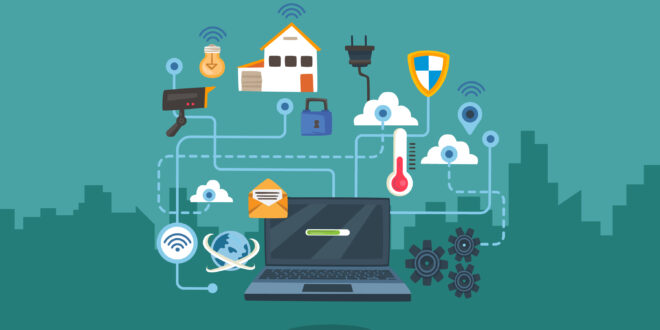Ben Pocock, IoT Product Specialist at Connexin explores the advances in IoT/Smartech and how it’s enhancing different industries
The Internet of Things (IoT) and smart technologies have come to the fore of business and public life in recent years. The rapid development of these platforms into affordable and scalable solutions has opened up new possibilities for a range of sectors.
Whether it’s utilities, health and social care, local government or brick and mortar industries, organisations are now integrating technologies that are turning them into smart businesses through the use of a mix of technologies such as sensors, ultra-fast broadband and predictive analytics.
Creating smarter cities
One area where the advances in IoT and smart technologies is making an impact is in urban environments such as towns and cities.
Through harnessing the data produced by towns, cities and their populations, IoT is allowing urban planners, councils and governments to create lasting, programmable infrastructure which reduces costs and makes environmental enhancements to improve quality of life.
Many urban areas have begun their smart journey, deploying networks such as LoRaWAN to gather thousands of new IoT driven data sets from technologies such as sensors and CCTV cameras, combining this with existing data to identify challenges and solutions. For example, Newcastle University is rolling out a LoRaWAN network across the city which will support research on urban flooding with real-time forecasting and digital twins, gain insights into the impact of COVID measures through people counting and active travel monitoring as well as track indicators for climate and the city’s net zero target.
However, for smart cities to become a reality, local governments and institutions need to take a people-first approach to the technology, using platforms to support decision making and not seeing their implementation as the end goal. Smart technologies are an enabler, not the solution.
Revolutionising utilities
The development in smart solutions has also started making waves in the utilities industry, allowing providers to manage assets more efficiently to benefit customers and shareholders.
One of the major developments has been smart water networks, which is where a series of sensors and smart water meters are used to monitor usage and for leaks or burst pipes so that they can be addressed quickly
By working with councils and service providers to gain access to infrastructure to install tools such as smart sensors, providers are now able to implement these technologies to monitor their networks and gather data to produce real benefits including meeting environmental standards and producing a return on investment.
These benefits can be seen in a recent trial conducted by Yorkshire Water. Through rolling-out the UK’s largest smart water network in West Sheffield, the provider identified that 32% of leakages could be traced to 1% of properties, preventing 90,000 litres of water being lost daily. At the same time, the implementation of low powered smart meters is anticipated to deliver a battery life in excess of 15 years, culminating in cost savings due to reduced meter replacements.
Enhancing healthcare
Accelerated by the pandemic, IoT is driving change in healthcare settings in order to keep patients safe and create more efficient services.
IoT is enabling the NHS to meet the demand faced by staff every day and provide higher levels of care. Smart solutions are improving the entire healthcare journey, from directing patients to the nearest car parking space to to the department they are visiting, through to robotic surgery. At the same time, hospitals are integrating smart technologies and machine learning to help aid diagnoses and medical interventions to reduce delays, automating admission and discharge, and transforming the buildings with the right digital infrastructure.
These technologies can also help tackle the NHS’s workforce shortage. With a growing population comes increased demand for hospital services, and whilst overseas recruitment campaigns help close the gap, this model is unsustainable. Utilising solutions such as AI can help hospitals streamline and automate many of the more mundane admin processes, alleviating the pressure on staff and allowing them to focus on patients.
Technology has drastically altered how sectors and businesses operate and now is the time for IoT and smart technologies to come front and centre. These examples demonstrate how smart solutions are improving everything from infrastructure to healthcare and, as technologies develop further, we will no doubt see their use and importance rise, creating a digitally enhanced future for all.
Read the latest edition of PCR’s monthly magazine below:
Like this content? Sign up for the free PCR Daily Digest email service to get the latest tech news straight to your inbox. You can also follow PCR on Twitter and Facebook.
 PCR Tech and IT retail, distribution and vendor news
PCR Tech and IT retail, distribution and vendor news




